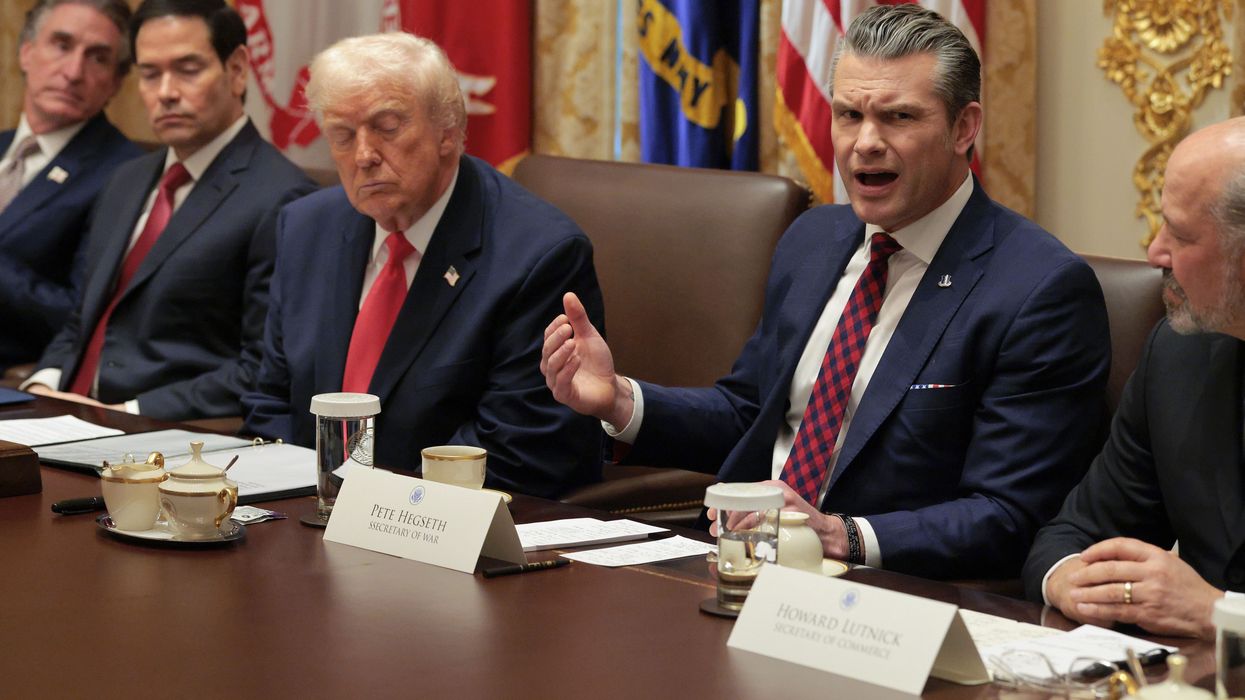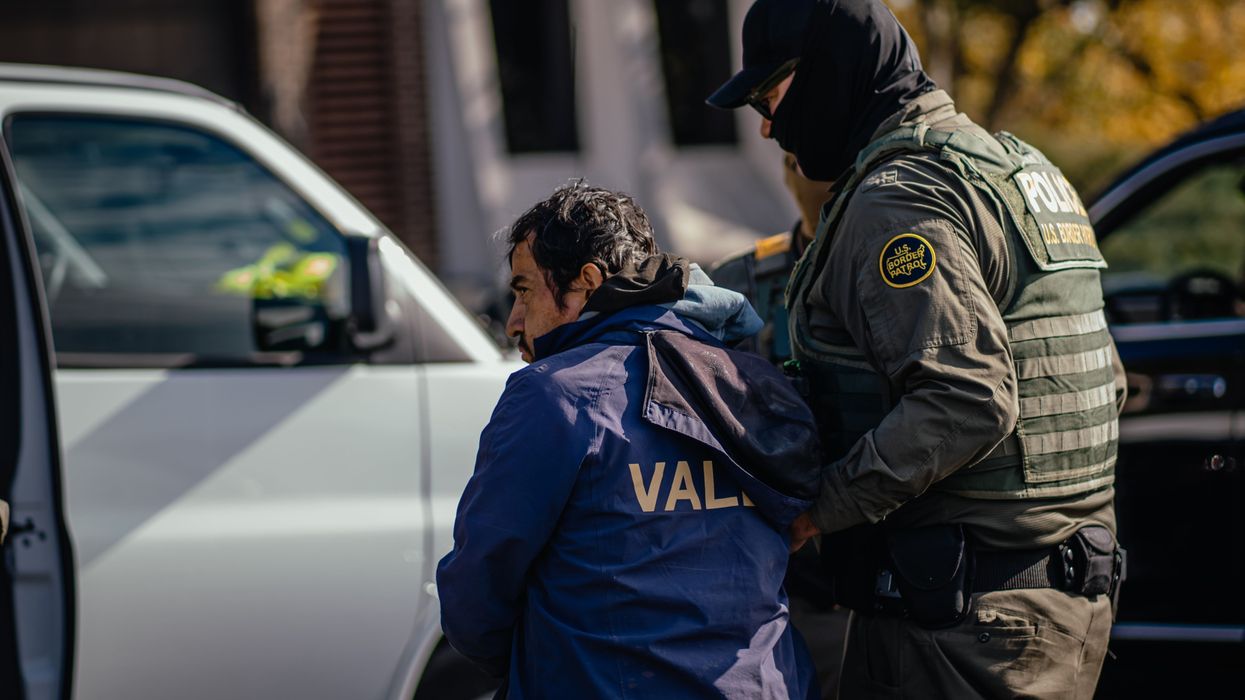August, 15 2012, 11:34am EDT
For Immediate Release
Contact:
Brent Millikan, International Rivers brent@internationalrivers.org, +55 61 8153-7009
Andrew Miller, Amazon Watch andrew@amazonwatch.org +1 202 423 4828
Joelson Calvacante, Inter-American Association for Environmental Defense (AIDA) jcavalcante@aida-americas.org, +52 55 5212-0141
Belo Monte Dam Suspended by Brazilian Appeals Court
Project was illegally authorized by Congress without prior consultations with indigenous tribes, judges say
Altamira, Brazil
A high-level court yesterday suspended construction of the controversial Belo Monte dam project on the Amazon's Xingu River, citing overwhelming evidence that indigenous people had not been properly consulted prior to government approval of the project.
A group of judges from Brazil's Regional Federal Tribunal (TRF1) upheld an earlier decision that declared the Brazilian Congress's authorization of the project in 2005 to be illegal.
The decision concludes that the Brazilian Constitution and ILO Convention 169, to which Brazil is party, require that Congress can only authorize the use of water resources for hydroelectric projects after an independent assessment of environmental impacts and subsequent consultations with affected indigenous peoples.
The ruling means that Brazilian Congress will have to correct its previous error by organizing consultations on the project's impacts with affected indigenous peoples of the Xingu River, especially the Juruna, Arara and Xikrin tribes. Their opinions should be considered in a Congressional decision on whether to authorize Belo Monte, and in the meantime the project consortium has been ordered to suspend construction.
Project consortium Norte Energia, S.A, led by the parastatal energy company Eletrobras, faces a daily fine of R$500,000, or about US$250,000, if it does not comply with the suspension. The dam consortium is expected to appeal the decision in the Brazilian Supreme Court.
"The court's decision highlights the urgent need for the Brazilian government and Congress to respect the federal constitution and international agreements on prior consultations with indigenous peoples regarding projects that put their livelihoods and territories at risk. Human rights and environmental protection cannot be subordinated to narrow business interests" stated Federal Judge Souza Prudente, who authored the ruling.
"This latest court ruling vindicates what indigenous people, human rights activists and the Federal Public Prosecutor's Office have been demanding all along. We hope that President Dilma's Attorney General and the head judge of the federal court (TRF1) will not try to subvert this important decision, as they have done in similar situations in the past," said Brent Millikan of International Rivers, based in Brasilia.
"This decision reinforces the request made by the Inter-American Commission on Human Rights in April 2011 to suspend the project due to lack of consultations with indigenous communities. We hope that Norte Energia and the government comply with this decision and respect the rights of indigenous communities," said Joelson Cavalcante of the Interamerican Association for Environmental Defense (AIDA), an organization giving legal support to affected communities.
The Brazilian Congress authorized construction of Belo Monte seven years ago without an environmental impact assessment (EIA). A subsequent study - produced by state-owned energy company Eletrobras and three of Brazil's largest construction companies (Camargo Correa, Andrade Gutierrez, and Odebrecht) - was widely criticized for underestimating socio-environmental impacts, especially on indigenous peoples and other traditional communities living downstream from the huge dam that would divert 80% of the Xingu's natural flow. The EIA was approved by Brazil's federal environmental agency (IBAMA) in February 2010 under intense political pressure and over the objections of the agency's own technical staff.
With dam construction racing ahead since June 2011, many of Belo Monte's forewarned social and environmental consequences are proving real. As a result, indigenous people have become more vocal in their opposition to Belo Monte.
During the United Nations' Rio+20 conference in June, indigenous leaders launched a 21- day occupation of the dam site, protesting against the growing impacts of the project and broken promises by dam-builders. Two weeks later, indigenous communities detained three Norte Energia engineers on tribal lands. Both protests demanded suspension of the project due to non-compliance of mitigation requirementes. Last month, the Federal Public Prosecutors' Office filed a lawsuit calling for suspension of the Belo Monte's installation license, given widespread non-compliance with conditions of the project's environmental licenses. Given this contentious and convoluted history, the long overdue process of consultations with indigenous peoples on Belo Monte is not likely to produce a positive verdict on Belo Monte, from the point of view of indigenous peoples.
Similar conflicts over violations of indigenous rights by dam projects are emerging elsewhere in the Brazilian Amazon.
Last week, in another landmark decision led by judge Souza Prudente, a group of judges from the TRF1 , the same court ordered the immediate suspension of one of five large dams planned for the Teles Pires river, a major tributary of the Tapajos river, noting a lack of prior and informed consultations with the Kayabi, Apiakas and Munduruku indigenous peoples affected by the project.
According to Souza Prudente, "the aggression against indigenous peoples in the case of the Teles Pires dam has been even more violent than in Belo Monte. A political decision to proceed with the construction of five large dams along the Teles Pires river was made by the Ministry of Mines and Energy with no effective analysis of impacts on the livelihoods and territories of indigenous peoples. The Sete Quedas rapids on the Teles Pires river are considered sacred by indigenous peoples and are vital for the reproduction of fish that are a staple of their diets. Yet none of this was taken into account in the basin inventory and environmental impact studies. Moreover, the government and Congress simply ignored their obligations to ensure prior and informed consultations with indigenous peoples, as determined by the Federal Constitution and ILO Convention 169".
Late yesterday, the President of the TRF1 announced his intention to overturn the decision of Souza Prudente and other federal judges regarding the Teles Pires hydroproject, marking a growing crisis within Brazil's judiciary system over the Dilma Rousseff administration's ambitious dam-building plans in the Amazon.
LATEST NEWS
Pentagon Weighed Sending Boat Strike Survivors to Salvadoran Prison to Avoid Defending Bombings in Court
One former Navy lawyer said the Trump administration "might not want to get into the messy issues involving detention and habeas corpus lawsuits.”
Dec 10, 2025
Pentagon officials asked about sending survivors of US boat strikes in the Caribbean Sea and Pacific Ocean to a notorious maximum security prison in El Salvador in a bid to keep them out of American courts—where the Trump administration's high seas extrajudicial killing spree would be subject to legal scrutiny.
New details published Tuesday by the New York Times revealed that attorneys at the US Department of Defense inquired about whether two survivors of an October 16 strike on a boat allegedly smuggling drugs in the southern Caribbean could be sent to El Salvador’s Terrorism Confinement Center (CECOT), where the Trump administration has shipped ihundreds of mostly Venezuelan victims of its mass deportation campaign.
The prison—the centerpiece of right-wing Salvadoran President Nayib Bukele’s war on crime—has been plagued by allegations of torture and other abuse.
One Trump administration official speaking on condition of anonymity told the Times that State Department lawyers were "stunned" by the query. The two boat strike survivors were ultimately returned to Colombia and Ecuador, their home countries.
Other unnamed officials told the newspaper that repatriations—either to survivors' home countries or to third nations—would become the administration's default plan for dealing with anyone who lived through the US attacks.
The goal, the officials said, was to avoid trying boat strike survivors in US courts, where the discovery process would compel the Trump administration—which has offered no concrete evidence to support its claims that the targeted vessels were carrying drugs—to provide legal justification for attacks that experts say are illegal.
The Pentagon's inquiry followed a September 2 "double-tap" strike on a vessel carrying 11 passengers. Two men survived the initial bombing but were killed in a second strike. Since then, at least 76 other people have been killed in 23 boat strikes reported by the Trump administration.
In addition to the two men who initially survived the September 2 strike and the two repatriated survivors of the October 16 attack, one other person who lived through a boat bombing was left adrift at sea and is presumed dead.
Some observers have noted similarities between the Trump administration's goal of keeping boat strike survivors out of US courtrooms and War on Terror policies and practices—first implemented during the George W. Bush administration—such as extraordinary rendition, the use of Central Intelligence Agency "black sites," and imprisonment of terrorism suspects at Guantánamo Bay in Cuba—designed to circumvent the law.
While the Trump administration previously sent migrants captured during its crackdown to Guantánamo, sending boat strike survivors to the lockup allow their lawyers to sue for habeas corpus, a right granted by the US Supreme Court in its 2008 Boumediene v. Bush decision.
The Trump administration has revived the term "unlawful enemy combatant"—which was used by the Bush administration to classify people caught up in the War on Terror in a way that skirts the law—to apply to boat strike survivors. The Pentagon has also called such survivors "distressed mariners," a term that normally applies to civilians stranded at sea.
“If we’re in a war, they should be using the term ‘shipwrecked survivors,’” Mark Nevitt, a former Navy lawyer who is now a law professor at Emory University, told the Times. “My theory is they might not want to get into the messy issues involving detention and habeas corpus lawsuits.”
Relatives of men killed in the strikes, as well as officials in Venezuela and Colombia, say that at least some of the victims were fishermen who were not linked to the illicit drug trade. One expert said last month that even in cases of vessels that were involved in drug trafficking, the bombings were "the equivalent of straight-up massacring 16-year-old drug dealers on US street corners.”
Even if the men targeted in the boat strikes were running drugs, "the appropriate response is to interdict the boats and arrest the occupants for prosecution," former Human Rights Watch executive director Kenneth Roth said Wednesday.
"The rules governing law enforcement prohibit lethal force except as a last resort to stop an imminent threat of death or serious bodily injury," he added, "which the boats do not present."
Keep ReadingShow Less
New DHS Database Suggests That Less Than 5% of Those Arrested by ICE Are the ‘Worst of the Worst’
The database contains just 9,738 total people, a tiny fraction of the more than 220,000 ICE data says the agency arrested between January 21 and October 15.
Dec 10, 2025
In response to criticism of its aggressive and often lawless "mass deportation" campaign—which has entailed sweeping raids by masked agents, the use of squalid detention centers rife with torture, overt racial profiling, and the near-total abrogation of due process—the Trump administration has often fallen back on a familiar refrain: that the immigrants it targets are "the worst of the worst" dangerous criminals.
Immigration data published throughout the second Trump administration has already undermined this claim. Last month, David J. Bier of the Cato Institute published new data showing that between October 1 and November 15, only 5% of those booked into ICE detention had violent criminal convictions, while 73% had no convictions at all. It mirrored previous data published by Cato in June, which showed that 65% arrested had no criminal convictions of any kind, while 93% had no violent convictions.
Justice Department data published last month, meanwhile, showed that of the at least 614 people snatched up in the Operation Midway Blitz crackdown in Chicago, just 16 had criminal records of any kind.
On Monday, the Department of Homeland Security published its own "Worst of the Worst" database seeking to reverse the narrative, but it seems to have done the opposite.
"DHS has launched WOW.DHS.GOV for Americans to see the criminal illegal aliens that we are arresting, what crimes they committed, and what communities we removed them from," read a post from the agency on social media.
The post leads to a website containing the names, photos, and nationalities of those arrested by ICE. It also lists alleged past criminal convictions. In many cases, the only documentation of the allegations, if any is provided at all, is a DHS press release rather than official court records.
"Under Secretary [Kristi] Noem's leadership, the hardworking men and women of DHS and ICE are fulfilling President Trump's promise and carrying out mass deportations—starting with the worst of the worst—including the illegal aliens you see here," a header on the website reads.
Among those listed are people who DHS says have been convicted of heinous crimes, ranging from attempted murder to child abduction to domestic battery.
But the database contains just 9,738 total people, a tiny fraction of the more than 220,000 ICE data says the agency arrested between January 21 and October 15.
"So DHS is implicitly admitting that less than 5% of the people it arrests are people they believe are 'the worst of the worst,'" said Aaron Reichlin-Melnick, a senior fellow at the American Immigration Council.
Moreover, even some of those listed among the "Worst of the Worst" have only nonviolent offenses to their name, like drug possession, shoplifting, or disorderly conduct.
Reichlin-Melnick also noted that while immigration law does not require a criminal conviction for a person to be removed, "it matters because the administration talks as if these cases are the majority."
"There are definitely bad people on there who deserve deportation, but plenty of others on the list have nothing worse than a misdemeanor," he said. “If the administration were to actually focus its resources on people who were serious public safety threats or fugitives, there would be less of an outcry. But data shows that the big focus has been on boosting numbers by going after people no previous administration, Republican or Democrat, prioritized.”
Keep ReadingShow Less
Trump Escalates in Venezuela With 'Illegal' US Seizure of Oil Tanker
“Millions of civilians will be at risk if the economy deteriorates and tensions rise," warned one anti-war group.
Dec 10, 2025
The US military on Wednesday seized an oil tanker off the coast of Venezuela in the latest act of aggression against a nation that President Donald Trump has been openly threatening for several weeks.
Bloomberg, which described the move as a "serious escalation" in tensions between the US and Venezuela, reported that the seizure of the tanker by US forces "may make it much harder for Venezuela to export its oil, as other shippers are now likely to be more reluctant to load its cargoes."
The seizure was described to Bloomberg by a Trump administration official as a "judicial enforcement action on a stateless vessel" that had been docked in Venezuela.
Shortly after the seizure occurred, Trump boasted about it during a meeting with business leaders at the White House, declaring that the tanker was the "largest one ever seized."
Trump: "It's been an interesting day from the standpoint of news. As you probably know, we've just seized a tanker on the coast of Venezuela. Largest one ever seized actually. And other things are happening." pic.twitter.com/wyOYMKCJTT
— Aaron Rupar (@atrupar) December 10, 2025
Just Foreign Policy, a progressive think tank and advocacy group, condemned the seizure of the tanker, describing it as an "illegal US move to take control of Venezuela's natural resources and strangle the economy, which is already struggling under indiscriminate US sanctions," and warning that "millions of civilians will be at risk if the economy deteriorates and tensions rise."
The seizure of the oil tanker is just one of many aggressive maneuvers that the Trump administration has been making around Venezuela.
Starting in September, the administration began a series of murders of people aboard boats in the Caribbean Sea off the coast of Venezuela and in the Pacific Ocean.
The Trump administration has claimed those targeted for extrajudicial killing are drug smugglers and accused Venezuelan President Nicolás Maduro of leading an international drug trafficking organization called the Cartel de los Soles, despite many experts saying that they have seen no evidence that such an organization formally exists.
Trump late last month further escalated tensions with Venezuela when he declared that airspace over the nation was “closed in its entirety,” even though he lacks any legal authority to enforce such a decree. Trump has also hinted that strikes against purported drug traffickers on Venezuelan soil would occur in the near future.
Keep ReadingShow Less
Most Popular


